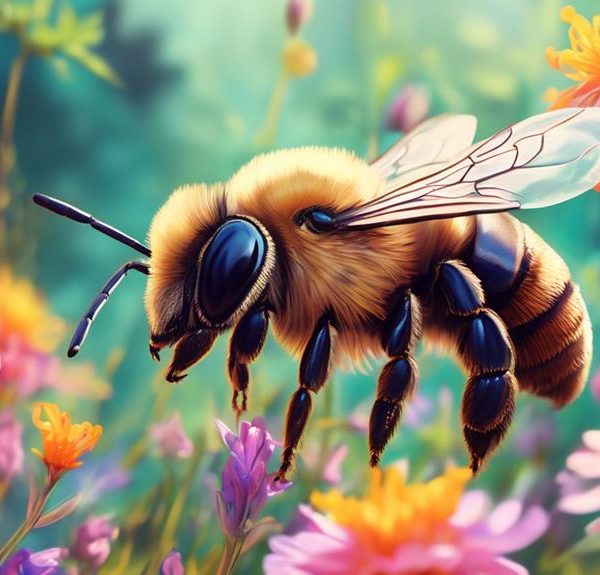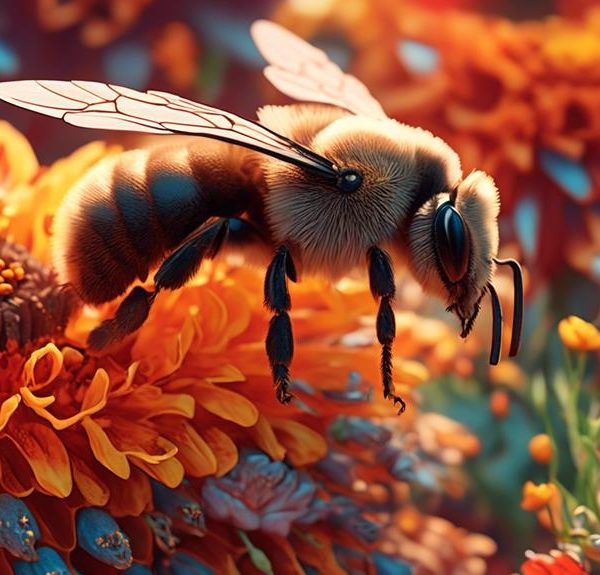Journey into New Jersey's buzzing ecosystem and discover the surprising presence of Mason Bees in this enlightening read.
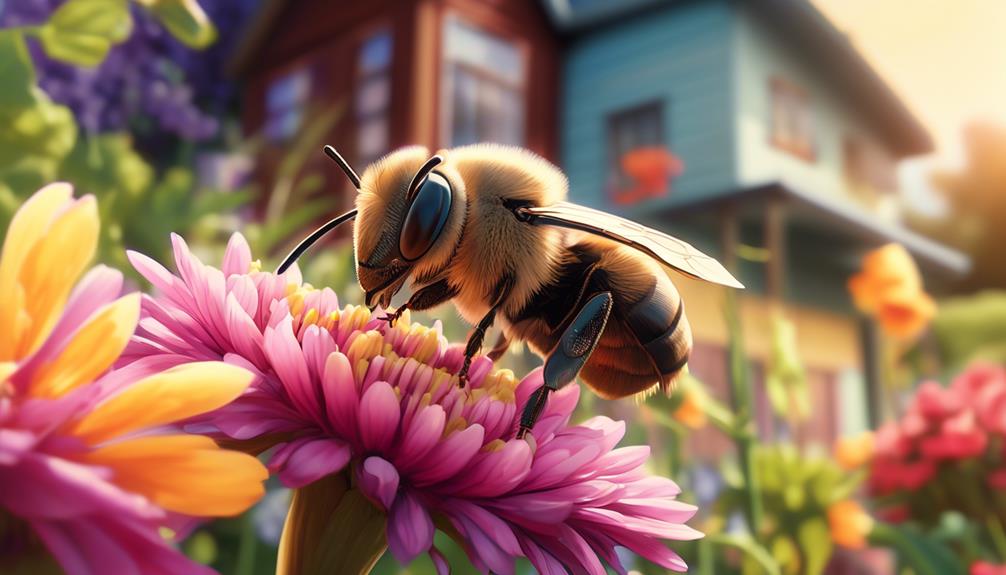
Are Mason Bees in Nj?
Have you ever wondered if Mason Bees call the Garden State home?
As you stroll through your local garden, you might have spotted a small, non-aggressive bee hovering around. It's quite possible you've encountered a Mason Bee.
Now, you're probably asking yourself, 'Are these helpful pollinators actually found in New Jersey?'
The answer might surprise you, offering a fresh perspective on our local ecosystem that just begs for further exploration.
Key Takeaways
- Mason Bees are native to New Jersey and play a crucial role in pollinating flowering plants.
- They are efficient pollinators, with each female visiting up to 2,000 flowers in a day.
- Their nesting habits promote the decomposition of wood and enhance biodiversity.
- Mason Bees are excellent pollinators for a wide range of fruits, vegetables, and nuts, contributing to food production and supporting ecological balance.
Understanding Mason Bees
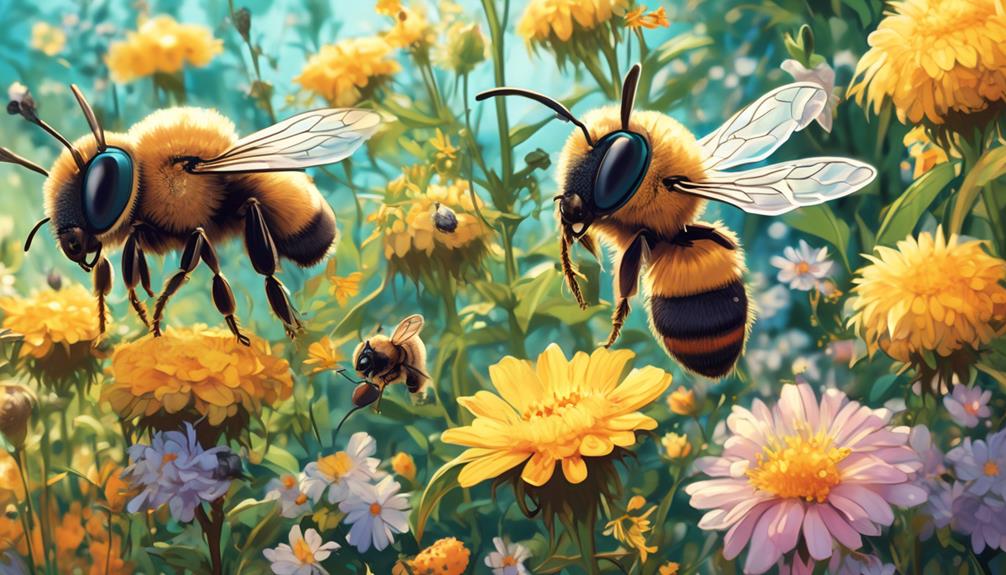
To truly appreciate the role of Mason Bees in New Jersey's ecosystem, you must first understand their unique behaviors, lifecycle, and the immense benefits they bring to our environment. Unlike honeybees, Mason Bees are solitary creatures. They don't live in hives; instead, they nest in small cavities, laying their eggs in chambers packed with pollen and nectar. They're not aggressive, so they don't pose a threat to people or pets.
Analyzing their lifecycle, it's clear that these bees are vital to our ecosystem. Their peak activity coincides with the flowering of fruit trees, making them excellent pollinators. In fact, they're known as super pollinators due to their efficiency. Each female can visit up to 2,000 flowers in a day! This pollination boosts crop yields, contributing to New Jersey's agricultural sector.
Their environmental contribution doesn't stop there. They don't produce honey, but their nesting habits promote the decomposition of wood, aiding in nutrient cycling. Also, their preference for native plants supports local biodiversity. Understanding these points, it's evident that Mason Bees are an invaluable asset to New Jersey's ecosystem.
Mason Bees in New Jersey
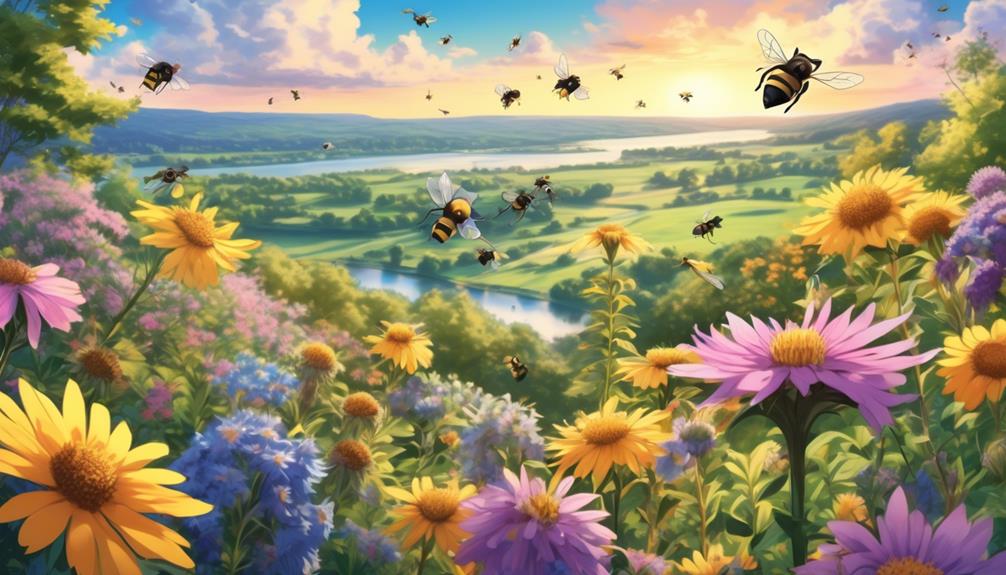
So, how exactly do Mason Bees fit into New Jersey's local ecosystem? You might be wondering. Well, these little dynamos are native to Jersey, and they play a crucial role in pollinating our flowering plants. They're solitary bees, meaning they don't live in colonies like honeybees. Instead, they prefer to nest in small crevices or tubes, often in your garden or yard.
Let's delve a bit into their characteristics, benefits, and common species in New Jersey:
Characteristics | Benefits | Common Species in NJ |
|---|---|---|
Solitary Bees | Efficient Pollinators | Blue Orchard Mason Bee |
Non-aggressive | Enhance Biodiversity | Horn-faced Mason Bee |
Nest in Small Crevices | Low Maintenance | Eastern Mason Bee |
Prefer Early Blooming Plants | Boost Crop Production | Red Mason Bee |
Blue-Black Metallic Color | Support Ecosystem | Yellow-faced Mason Bee |
You can encourage these essential pollinators by setting up a mason bee house in your garden. It's a win-win: you get a flourishing garden, and the bees get a habitat. Remember, every species plays a role in our ecosystem. By supporting mason bees, you're contributing to New Jersey's biodiversity.
Identifying Mason Bees
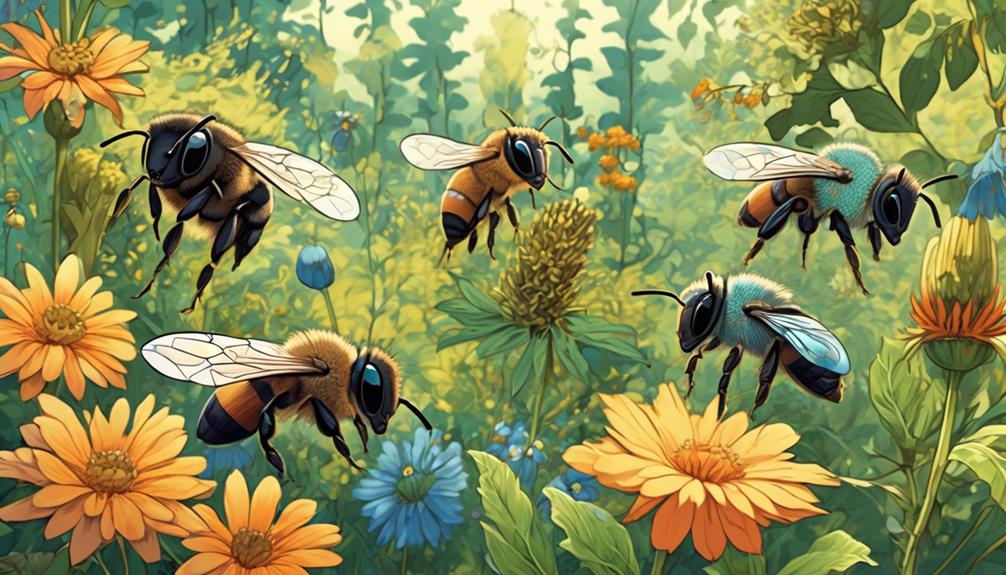
While you're enjoying the fruits of your garden, you might come across a mason bee, and recognizing these pollinators is essential. These bees are quite small, typically ranging from 1/4 to 1/2 inch long. Unlike honeybees, mason bees are solitary and don't live in hives. They're often metallic blue or green and have a robust, rounded shape.
In identifying them, it's crucial to note their unique nesting behavior. Mason bees nest in pre-existing holes, often in wood or hollow stems. They're called 'mason' bees because they use mud to seal off each egg in its separate chamber within the nest. If you see a bee carrying mud, it's likely a mason bee.
Mason bees also have a distinct flight pattern that sets them apart. They're known for their quick, darting flight as they move from flower to flower. This is different from the more languid, hovering flight of honeybees and bumblebees.
Importance of Mason Bees
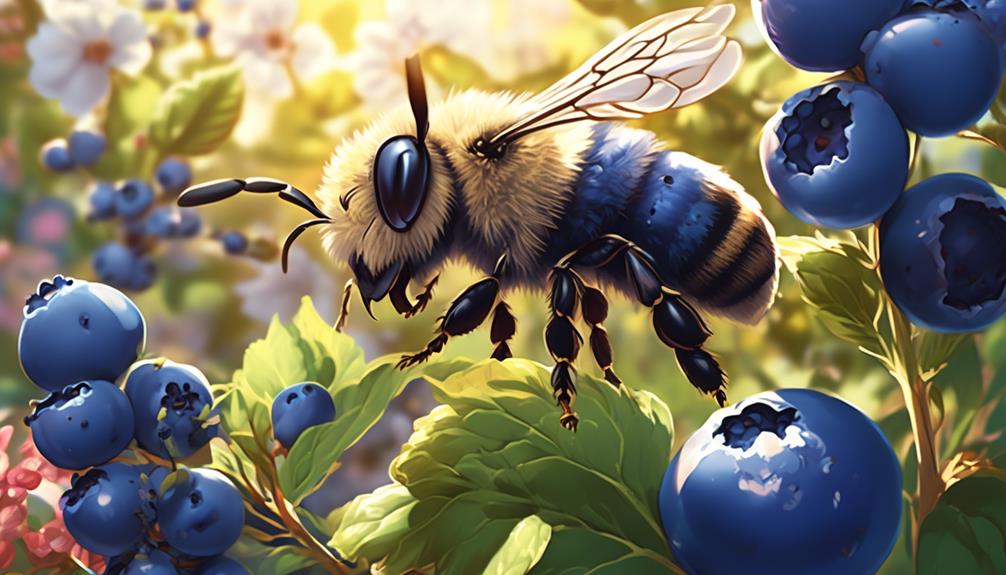
Having identified these fascinating creatures, you might wonder why mason bees hold such significance in our ecosystem. Well, their importance goes beyond their intriguing characteristics and extends into the wider ecological balance.
Mason bees are prodigious pollinators. Unlike honey bees that carry pollen on their hind legs, mason bees carry it on their abdomen. This means they're capable of transferring pollen more effectively, making them vital for plant reproduction.
Here's a quick breakdown of their impact:
Importance of Mason Bees | Details |
|---|---|
Pollination | They're excellent pollinators, playing a crucial role in maintaining biodiversity. |
Food Production | They aid in the pollination of a wide range of fruits, vegetables, and nuts, contributing to our food supply. |
Ecological Balance | As key pollinators, they help maintain the health of ecosystems, supporting both wildlife and human populations. |
Their existence is threatened by habitat loss and pesticides. Therefore, it's essential to promote their conservation for the continued health of our ecosystems. Remember, every creature has its role, and the mason bee's role is undeniably significant.
Attracting Mason Bees in NJ
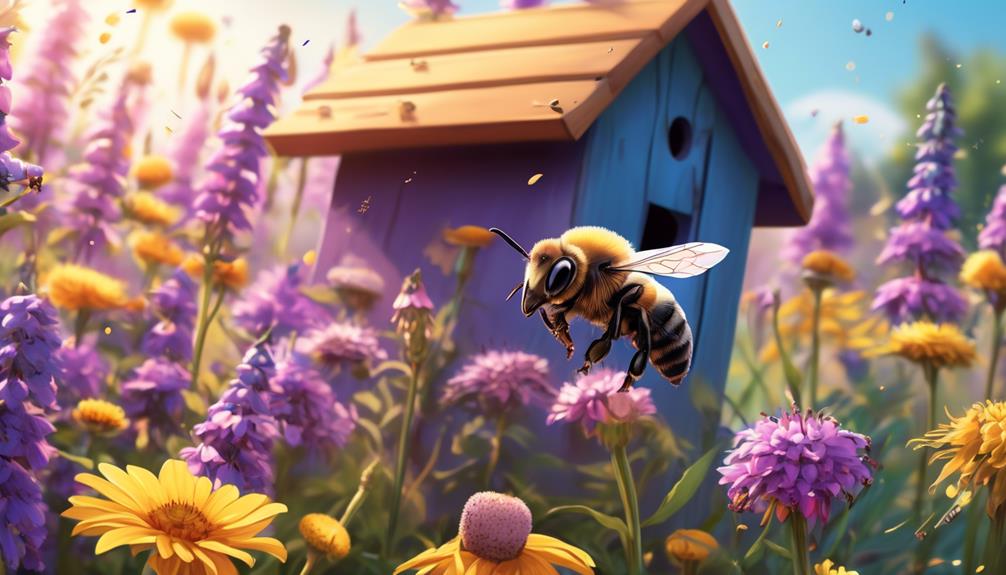
If you're looking to foster a more sustainable ecosystem in New Jersey, attracting mason bees to your backyard can be a rewarding endeavor. These bees are native to New Jersey and are known for their efficient pollination. They're easy to attract and manage, making them perfect for both novice and experienced bee enthusiasts.
To attract mason bees, you'll need to provide suitable nesting sites. They prefer hollow reeds or tubes, often found in bee houses that you can purchase or build yourself. Place your bee house in a sunny spot, preferably facing east or southeast to catch the morning sun.
Next, you'll need to provide a mud source. Unlike honeybees, mason bees use mud to build their nests. A simple muddy spot in your garden can serve this purpose.
Lastly, mason bees need food sources. They're not picky and will pollinate a wide variety of plants, but they're particularly attracted to fruit trees and spring-blooming plants.
Conclusion
Yes, Mason bees are indeed present in New Jersey. Recognizing them helps understand their crucial role in the ecosystem.
They're not just beneficial pollinators but also easy to attract. So, why not help increase their population?
By providing the right habitat and food sources, you can contribute to a healthier, more diverse environment right in your own NJ backyard.
Remember, every little effort counts towards supporting these unsung heroes of our ecosystem.

